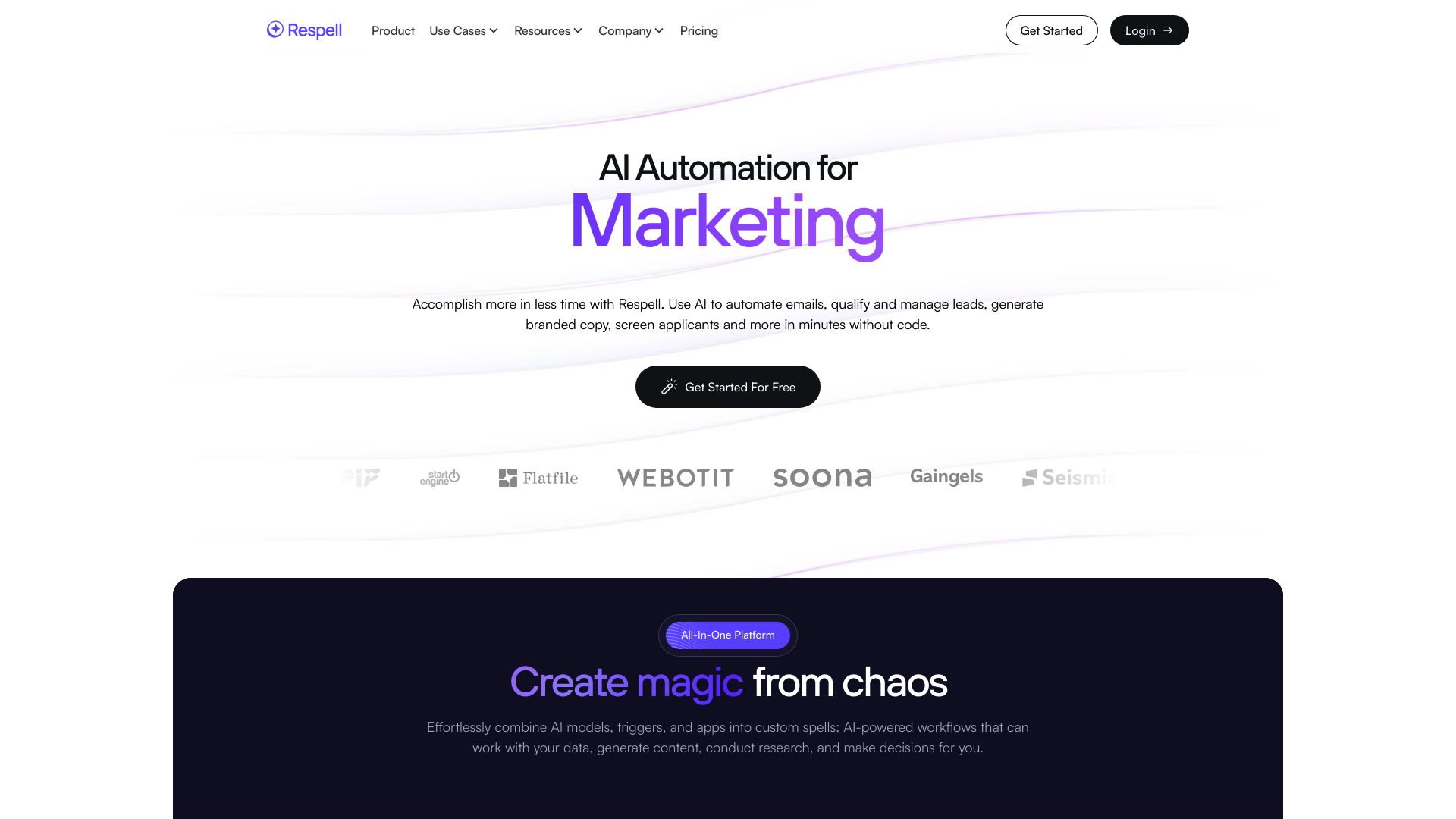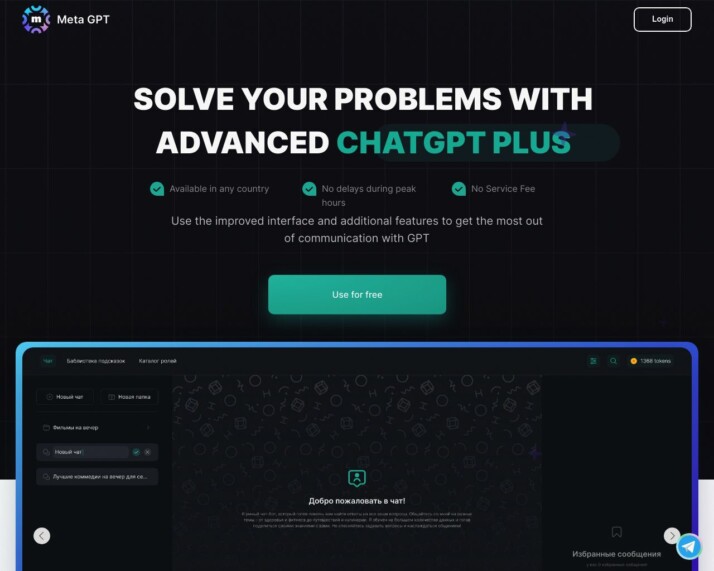Respell vs. MetaGPT: Comparing AI Automation Platforms
AI-powered automation platforms are transforming businesses across industries, offering unprecedented efficiency and innovation. Two prominent players, Respell vs. MetaGPT, have emerged with unique approaches to AI agent development. Respell focuses on user-friendly, no-code solutions, while MetaGPT simulates human team structures for complex problem-solving. This comparison delves into their core features, security measures, and real-world applications. We’ll explore how these platforms stack up against SmythOS, a comprehensive solution that combines intuitive design with powerful multi-agent capabilities. Whether you’re a developer seeking advanced AI integrations or a business leader looking to streamline operations, this analysis will guide you through the strengths and limitations of each platform, helping you make an informed decision for your AI automation needs.
Respell Overview
Respell empowers users to create AI-driven workflows and agents without coding expertise. The platform’s Spell Studio offers a visual, drag-and-drop interface for building custom AI workflows called ’spells.’ These spells can automate tasks, process data, and integrate with various third-party services.


Respell’s AI assistant, Elle, serves as a multifunctional teammate capable of building spells, conducting research, and managing data sources. The platform supports both development and production environments, allowing users to create, test, and deploy spells seamlessly. Respell integrates with popular services like Airtable, Confluence, Google, HubSpot, and Salesforce, expanding its utility across various business applications.
Respell empowers users to create AI-driven workflows and agents without coding expertise. The platform’s Spell Studio offers a visual, drag-and-drop interface for building custom AI workflows called ’spells.’
While Respell excels in providing a user-friendly interface for AI workflow creation, it lacks some advanced features. The platform doesn’t offer a hosted vector database or specialized crawlers for sitemaps, YouTube transcripts, or URLs. This may limit its capabilities for projects requiring extensive data processing or web scraping.
Respell’s focus on accessibility and integration makes it particularly suited for businesses looking to incorporate AI into their operations without extensive technical resources. However, users with highly specialized AI needs or those requiring advanced data handling capabilities may find the platform somewhat limiting. Despite these constraints, Respell’s commitment to simplifying AI workflow creation positions it as a valuable tool for many organizations seeking to leverage AI technology.
MetaGPT Overview
MetaGPT revolutionizes multi-agent collaboration by fusing human Standardized Operating Procedures (SOPs) with advanced Large Language Models (LLMs). This open-source framework simulates a software company’s structure, assigning distinct roles like product managers, architects, and engineers to AI agents.
MetaGPT’s core philosophy, “Code = SOP(Team),” integrates established human practices into AI-driven processes. The platform breaks complex tasks into manageable subtasks, each handled by specialized agents. This approach ensures more accurate and robust solutions, significantly reducing errors typically associated with multi-agent systems.


MetaGPT’s core philosophy, “Code = SOP(Team),” integrates established human practices into AI-driven processes. The platform breaks complex tasks into manageable subtasks, each handled by specialized agents.
Uniquely, MetaGPT generates comprehensive documentation throughout the development process, including requirement documents, design artifacts, and interface specifications. These outputs enhance the final code’s success rate and facilitate better human-AI interaction.
The framework’s ability to mimic and improve human collaboration processes within an AI environment sets it apart. By incorporating SOPs and specialized roles, MetaGPT enables AI agents to work together efficiently, producing high-quality outputs aligned with human standards. This approach not only enhances multi-agent system performance but also opens new possibilities for AI application in complex, real-world scenarios.
However, MetaGPT faces challenges in scalability and integration with existing systems. Its open-source nature may require significant technical expertise for implementation and customization. Additionally, the framework’s reliance on predefined roles and processes might limit flexibility in certain use cases.
MetaGPT’s vision extends beyond software development, aiming to establish a new standard in AI and multi-agent collaboration across various domains. By leveraging human-like SOPs and structured communication protocols, the framework expands AI agents’ capabilities, enabling them to tackle increasingly complex and diverse tasks.
Feature Comparison
Respell and MetaGPT offer distinct approaches to AI agent development, with key differences in their core components and security features. Respell provides a user-friendly visual builder called Spell Studio, allowing users to create AI workflows through drag-and-drop interfaces without coding. This accessibility makes it ideal for non-technical users and rapid prototyping. In contrast, MetaGPT focuses on simulating a software company structure, assigning specialized roles to AI agents for collaborative problem-solving. This approach excels in handling complex, multi-step tasks but may require more technical expertise to implement.
Security-wise, Respell emphasizes data encryption and OAuth support, ensuring secure integrations with third-party services. However, it lacks explicit IP control features. MetaGPT’s open-source nature allows for customizable security implementations but may require additional effort to achieve enterprise-grade security standards. While both platforms support multi-agent collaboration, MetaGPT’s structured approach using human-like Standard Operating Procedures (SOPs) potentially offers more robust and predictable outcomes for complex projects. Respell’s strength lies in its extensive integration capabilities and user-friendly interface, making it more accessible for a broader range of users across various industries.
Feature Comparison Table
| Respell | MetaGPT | SmythOS | |
|---|---|---|---|
| CORE FEATURES | |||
| Visual Builder | ✅ | ❌ | ✅ |
| No-Code Options | ✅ | ❌ | ✅ |
| SECURITY | |||
| Constrained Alignment | ❌ | ✅ | ✅ |
| IP Control | ❌ | ❌ | ✅ |
| COMPONENTS | |||
| Huggingface AIs | ❌ | ✅ | ✅ |
| Data Lakes | ❌ | ❌ | ✅ |
| DEPLOYMENT OPTIONS (EMBODIMENTS) | |||
| Staging Domains | ❌ | ❌ | ✅ |
| Production Domains | ❌ | ✅ | ✅ |
| Deploy as GPT | ❌ | ✅ | ✅ |
| DATA LAKE SUPPORT | |||
| Hosted Vector Database | ❌ | ❌ | ✅ |
| Sitemap Crawler | ❌ | ❌ | ✅ |
| YouTube Transcript Crawler | ❌ | ❌ | ✅ |
Best Alternative to Respell and MetaGPT
SmythOS stands out as the superior alternative to Respell and MetaGPT for AI agent development and deployment. Our platform combines powerful features with unparalleled ease of use, making it the ideal choice for businesses and developers seeking to harness the full potential of AI automation.
Unlike Respell’s limited no-code options and MetaGPT’s complex, code-heavy approach, SmythOS offers a versatile drag-and-drop interface that simplifies agent creation without sacrificing functionality. We provide a comprehensive suite of tools that cater to both technical and non-technical users, enabling rapid prototyping and deployment of sophisticated AI solutions.
SmythOS offers a versatile drag-and-drop interface that simplifies agent creation without sacrificing functionality.
SmythOS excels in its extensive integration capabilities, surpassing both Respell and MetaGPT. Our platform seamlessly connects with a wide array of APIs, data sources, and AI models, including those from OpenAI, Anthropic, and Hugging Face. This flexibility allows users to create AI workflows that integrate smoothly with existing systems and leverage cutting-edge AI technologies.
In terms of deployment options, SmythOS offers unmatched versatility. We support multiple deployment environments, including development and production servers, and provide options for deploying agents as APIs, webhooks, chatbots, and even GPTs. This level of flexibility is not matched by either Respell or MetaGPT, giving SmythOS users the freedom to implement AI solutions across various platforms and use cases.
Security and scalability set SmythOS apart from its competitors. We incorporate robust security features like data encryption, OAuth support, and IP control, addressing enterprise-level concerns that Respell and MetaGPT may overlook. Our platform is built to scale, supporting everything from small projects to large-scale, data-intensive applications without compromising performance or reliability.
Conclusion
Respell and MetaGPT offer unique approaches to AI agent development, each with distinct strengths. Respell’s user-friendly Spell Studio and extensive third-party integrations make it accessible for non-technical users and businesses seeking rapid AI workflow implementation. MetaGPT’s innovative multi-agent collaboration framework excels in complex, multi-step tasks, mimicking human team structures for enhanced problem-solving.
However, SmythOS emerges as the superior choice, combining the best of both worlds while offering additional advantages. Our platform’s intuitive drag-and-drop interface rivals Respell’s ease of use, while our robust multi-agent orchestration capabilities match and exceed MetaGPT’s collaborative approach. SmythOS stands out with its unparalleled integration ecosystem, supporting over 300,000 integrations and a wide range of AI models.
Unlike Respell and MetaGPT, SmythOS offers a comprehensive suite of deployment options, allowing users to create once and deploy anywhere. This flexibility, combined with our advanced features like hosted vector databases, multimodal support, and extensive debugging tools, positions SmythOS as the most versatile and powerful platform for AI agent development.
We invite you to experience the future of AI automation with SmythOS. Create a free account today and discover how our platform can revolutionize your workflow. With unlimited agents, a 30-day money-back guarantee, and the ability to automate virtually any task, SmythOS empowers you to unlock the full potential of AI for your business. Explore our diverse range of AI-powered agent templates and start building your intelligent workforce today.
Last updated:
Disclaimer: The information presented in this article is for general informational purposes only and is provided as is. While we strive to keep the content up-to-date and accurate, we make no representations or warranties of any kind, express or implied, about the completeness, accuracy, reliability, suitability, or availability of the information contained in this article.
Any reliance you place on such information is strictly at your own risk. We reserve the right to make additions, deletions, or modifications to the contents of this article at any time without prior notice.
In no event will we be liable for any loss or damage including without limitation, indirect or consequential loss or damage, or any loss or damage whatsoever arising from loss of data, profits, or any other loss not specified herein arising out of, or in connection with, the use of this article.
Despite our best efforts, this article may contain oversights, errors, or omissions. If you notice any inaccuracies or have concerns about the content, please report them through our content feedback form. Your input helps us maintain the quality and reliability of our information.
